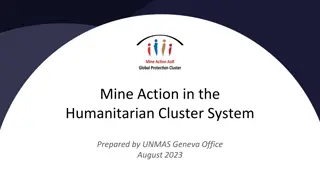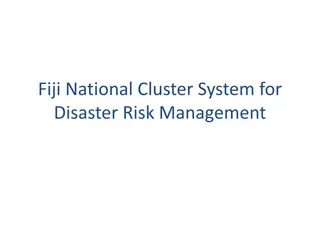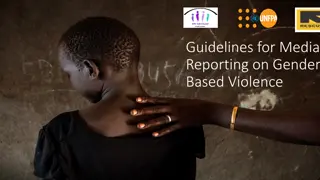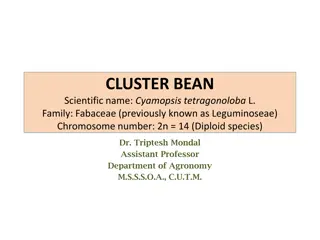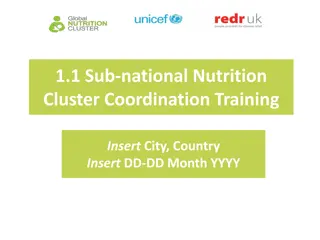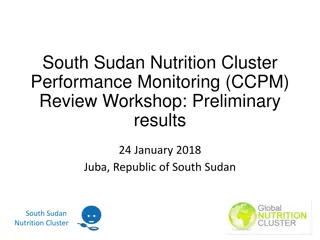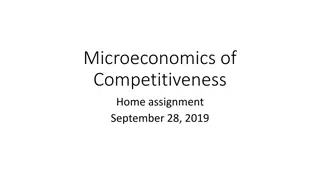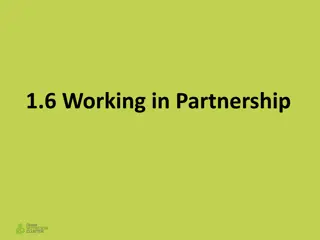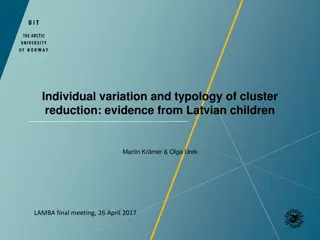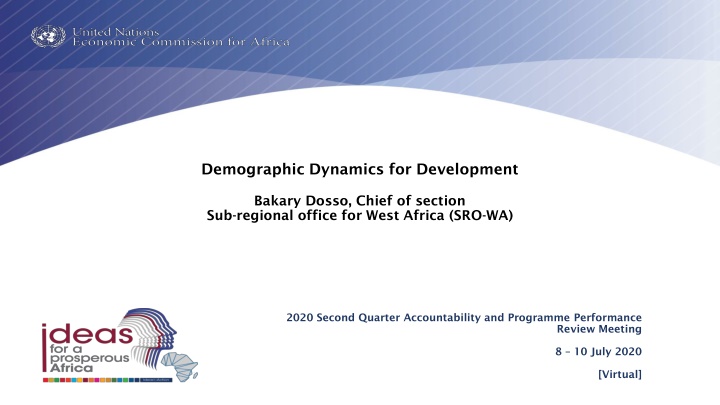
Demographic Dynamics for Development in West Africa - Program Review 2020
Explore the progress and achievements in mainstreaming demographic dynamics for inclusive development in West Africa. Highlights include training national officials, influencing policy formulation, and empowering youth for sustainable development.
Download Presentation

Please find below an Image/Link to download the presentation.
The content on the website is provided AS IS for your information and personal use only. It may not be sold, licensed, or shared on other websites without obtaining consent from the author. If you encounter any issues during the download, it is possible that the publisher has removed the file from their server.
You are allowed to download the files provided on this website for personal or commercial use, subject to the condition that they are used lawfully. All files are the property of their respective owners.
The content on the website is provided AS IS for your information and personal use only. It may not be sold, licensed, or shared on other websites without obtaining consent from the author.
E N D
Presentation Transcript
Demographic Dynamics for Development Bakary Dosso, Chief of section Sub-regional office for West Africa (SRO-WA) 2020 Second Quarter Accountability and Programme Performance Review Meeting 8 10 July 2020 [Virtual]
Map- West African countries of focus Cabo verde Gambia,The Guinea-Bissau 5 CoFs covered by DDD interventions in Q1 & Q2
2020 Progress on achievements (all budget sources: 18, 23, 11, 35) Objective: achieve inclusive development and regional integration in West Africa RA1: Mainstreaming demographic dynamics in development plans and policies at national and subregional levels PM: Increased number of national officials trained in demographic dynamics and working to influence public policy formulation processes (Baseline (2019) 30; Target (2020)- 30; Actual (2020) 10) Preliminaries results of DDD research agenda including indicators (Life cycle deficits, economic dependency covered index, economic support ratio, demographic windows of opportunities) and analysis at national and subregional levels to inform and influence policies in demographic dynamics Work on the Public Budgeting framework sensitive to Demographic Dividend was rolled out in Mali (pilot) and was endorsed by the country to inform its 2021 national budget deliberations. Elaboration of an online courses on NTA methodology has started to increase number of national officials trained in demographic dynamics and working to influence public policy formulation processes
2020 Progress on achievements (all budget sources: 18, 23, 11, 35) Objective: achieve inclusive development and regional integration in West Africa RA1: Mainstreaming demographic dynamics in development plans and policies at national and subregional levels PM: Increased number of national officials trained in demographic dynamics and working to influence public policy formulation processes (Baseline (2019) 30; Target (2020)- 30; Actual (2020) 10) Work influenced the outcomes of the Virtual Youth Policy Conversation on Building Back Better with Young Africans held on 9 June 2020. The ECA/SRO-WA jointly with AUC Office of the Youth Envoy, and GenU/UNICEF successfully mobilized more than 900 young people in the dialogue. Consequently, the outcome of the Youth Policy Consultation was presented at the AUC Special Technical Committee (STC) meeting of Ministers in charge of Youth, held on 17 June 2020 and informed their deliberations. Furthermore, the outcome document will inform ECA s future programming on empowering the youth as a pathway to harnessing demographic dividend for the region s Structural transformation and sustainable development Attendance metrics of the AUC Office of Youth Envoy, generated on 16 June 2020.
2020 Progress on achievements Publication of two (2) Structural Transformation Profiles (STEPS Profiles) for 2 countries of focus: Liberia and Cote d Ivoire, addressing SDG Goal 8 Publication on economic and social structural transformation in West Africa: Study on DDD and structural transformation in West Africa (1) THINK-TANK An issue paper produced on "Maximizing investments to achieve optimum demographic dividend (DD) in West Africa as the core theme of the forthcoming 23rd Session of the Intergovernmental Committee of Senior Officers and Experts in West Africa A preliminary version of a Population model was produced using system dynamic modelling targeting the Sahel region, 2 countries of Focus (CoFs): Burkina Faso and C te d Ivoire, and Senegal A study on the impact of COVID-19 on West African countries was produced. This has informed country specific analyses of COVID19-Socio-economic Response Plans of Niger, Guinea- Bissau, Togo and Senegal, and 3 CoFs: Cote d Ivoire, Ghana, Guinea
2020 Progress on achievements Mali High level dialogue on budget sensitive to DD resulted in strengthening partnership with Mali s National DD Observatory, an institutional watchdog to harnessing DD National consultations on mainstreaming gender in DD policies in Niger to inform the DD Observatory CONVENING UN legal ID successfully rolled out in Niger, in partnership with ACS, resulted in an agreed action plan between Government and Partners to integrate ID into CRVS Youth related policy proposition (from Virtual Youth Policy) conveyed at the African Union Specialized Technical Committee of Ministers of Youth, Culture and Sports
2020 Progress on achievements Development of DD Gender Index in Niger which will inform the double mainstreaming i.e.DD and gender into policy formulation and programming OPERATIONAL Budget sensitive to DD endorsed by Mali s National Parliament , Ministry Economy and Finance OPERATIONAL and Population National Observatory. Will influence resource allocations to DD related sectors Five demographers/statisticians from Burkina Faso, Cote d Ivoire, Niger, Senegal and ECOWAS Commission trained in population modeling A centralized and integrated database developed for UEMOA in partnership with ACS
HOW? Delivery modalities RA1 Joint delivery in Countries of Focus Alignment with ECA s strategic directions Target countries ECOWAS 15 member States with a special focus on: Comprehensive analytical insight into the socio- economic effect of Covid-19 in partnership with RCOs, MGD and external partners (AfDB; UNDP; World bank; IMF) to inform policy and decision-making - - - - - Burkina Faso; Cote d Ivoire; Ghana; Guinea Liberia; Response to COVID-19 Study on the socioeconomic impact of Covid-19 on West Africa Specific country analysis in Niger; C te d Ivoire, Ghana, Guinea (3 CoFs); Guinea-Bissau, Togo and Senegal Mobilization of member States Ministers of the Economy, Budget and/or Finance to participate in the regional process of coordinated COVID-19 responses
HOW? Delivery modalities - RA1 Partnerships (external) Contribution to the SDGs Follow-up on ARFSD res. Research on COVID-19 impacts on African youth to inform investments policies to harness demographic dividend in Africa Partnership with CREG; NTA-Africa Network; Millennium Institute; national population observatories on DD research agenda to formulate evidence-based plans and policies. Target 8.3: Target 16.9: Target 17.9; Target 4.3 ; 4.4 ; Target 5A. Gender Mainstreaming OIBCs (if applicable) Partnership with AUC (office of youth envoy); GenU/UNICEF to echo youth voices and engagement as leaders National consultation on mainstreaming gender in DD policies in Niger informed by gender demographic dividend index Advocacy for the production of gender responsive data Use of National Transfer Account (NTA) to understand demographic dividend (OIBC 1 and 3) Implementation of budget sensitive demographic dividend in Mali (OIBC 3)
Status update: Key challenges and lessons learnt RA1 Lessons learnt Key challenges ECA-wide quick and timely response to Covid19, momentum build and well recognized impact opened up opportunities for long term policy and change Reprioritization of work programme, to adapt to the Covid-19 context and related need to respond MS new requests Strategic partnerships built with RCs/UNCTs, RECs as a cost effective strategy for wider outreach and timely responses to countries structural and emerging needs Joint SROWA-IDEP promotion of distance learning training centered on DD (E-learning, self and/or on pace, assisted, tailored and/or mixed-training) Important convening activities (ex. ICE) postponed due to COVID-19 impact Pervasive insecurity and extreme violence in the Sahel region fuelled by the new geopolitical dynamics Risks to jeopardizing ongoing efforts for sustainable development in the sub-region due to COVID-19 impact on 4 DD pillars: health, education, employment and governance. Limited resources to respond to growing demands from MS due to Covid-19, among other and the need to support RCs
Status update on implementing partners Support from the Regional Consortium in Generational Economy (CREG) and representing the Secretariat of NTA-Africa Network in the implementation of DDD research agenda

